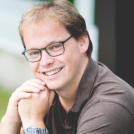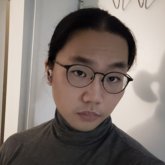PhD Position: Advancing Kinematic Couplings for Precision Alignment Applications
Are you fascinated by the mechanics behind ultra-precise systems?
This PhD project explores the frontier of passive kinematic couplings—mechanical interfaces that achieve sub-micron alignment without actuators, sensors, or control systems. You’ll tackle fundamental challenges such as initial misalignment, thermal drift, and load response, and develop novel coupling designs that are both theoretically rigorous and practically impactful. Your work will contribute to next-generation solutions in optics, metrology, semiconductor manufacturing, and medical technology—where precision meets simplicity.
The challenge
This PhD research focuses on the advanced design and analysis of kinematic couplings—a key technology for achieving passive, high-precision, and deterministic alignment between precision components. Unlike active alignment methods that rely on actuators and sensors, kinematic couplings enable self-alignment purely through geometry and contact mechanics, offering a fast, robust, and repeatable solution for high-tech applications.
Although the concept of kinematic couplings has existed for decades, the underlying physical phenomena remain poorly understood. In particular, the effects of friction, compliance, and contamination on alignment repeatability introduce uncertainties that limit their predictability and broader application.
You will investigate the underlying mechanical principles—including contact stiffness, constraint geometry, and material interactions, in particular friction—to develop novel coupling designs optimized for increased repeatability, thermal stability, and load-bearing capacity. These designs are critical in fields such as:
- Optical component alignment
- High-precision metrology instruments
- Wafer bonding in semiconductor manufacturing
- Engine docking assemblies
- Medical diagnostic and imaging systems
A key aspect of this research is addressing fundamental engineering challenges that currently limit the adoption of kinematic couplings, including:
- Initial alignment sensitivity during assembly or docking
- Thermal fluctuations and their impact on positional stability
- Loadability and robustness under dynamic or off-axis forces
You will combine analytical modeling, finite element simulations, and experimental validation to explore new coupling topologies and materials. The goal is to push the boundaries of passive alignment technologies and enable their integration into next-generation precision systems.
As a member of the Precision Engineering Laboratory, you will become part of a collaborative team of PhD researchers working in a dynamic and supportive environment. You will have the opportunity to present your research at leading international scientific conferences, helping you grow your academic profile and expand your professional network. This project is closely connected to and funded by the Dutch precision engineering community, offering a unique chance to contribute directly to innovations in high-tech industry.
Information and application
Are you interested in this position? Please send your application via the 'Apply now' button below before August 12, and include:
Your application should include:
- a cover letter of max 1 page (emphasizing your specific interest, motivation and qualifications).
- a full Curriculum Vitae, including contact information for at least two academic references.
- an academic transcript of BSc and MSc education.
An interview and an assignment will be part of the selection procedure.
The first (online) job interviews will take place on August 18.
For more information regarding this position, you are welcome to contact (Jan de Jong + j.j.dejong@utwente.nl)
Screening is part of the selection procedure.
About the department
At the Precision Engineering Laboratory, we develop model-based methods for designing and controlling ultra-precise systems. Building on the Dutch design principles legacy of van den Hoek, Koster, and Soemers, we specialize in flexure-based design for frictionless, repeatable motion. Interdisciplinary collaborations—with control, materials, and tribology experts—enable the creation of high-quality technology demonstrators. Strong ties to Dutch industry ensure our research is both scientifically rigorous and industrially relevant.
Our well-equipped lab is a hands-on environment where scientific rigor meets engineering creativity. We don’t just build systems that work—we strive to understand why they work. With high-precision tools and a strong focus on physical insight, the lab serves as a playground for researchers driven by curiosity and a passion for precision.
About the organisation
The Faculty of Engineering Technology (ET) engages in education and research of Mechanical Engineering, Civil Engineering and Industrial Design Engineering. We enable society and industry to innovate and create value using efficient, solid and sustainable technology. We are part of a ‘people-first' university of technology, taking our place as an internationally leading center for smart production, processes and devices in five domains: Health Technology, Maintenance, Smart Regions, Smart Industry and Sustainable Resources. Our faculty is home to about 2,900 Bachelor's and Master's students, 550 employees and 150 PhD candidates. Our educational and research programmes are closely connected with UT research institutes Mesa+ Institute, TechMed Center and Digital Society Institute.





